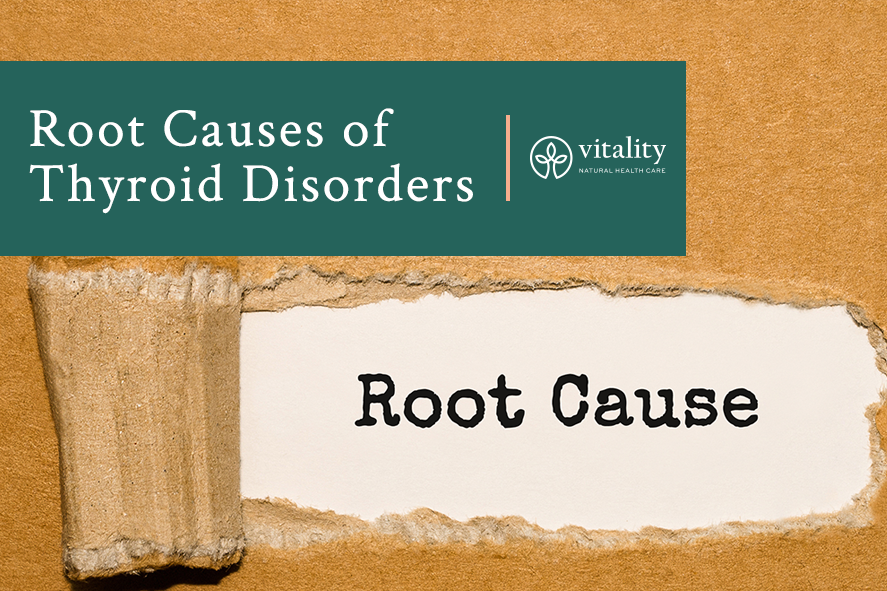This is the third in a series of posts about thyroid health. Read the first post on the basics of thyroid function here, and find out what types of tests you need to detect thyroid imbalances here.
Whether you’ve been diagnosed with a thyroid issue, or you’re interested in prevention, it’s important to know why thyroid conditions occur, so let’s dig into root causes.
1. Genetic Predisposition
In many cases, thyroid conditions run in families, so it’s important to know your family medical history. If you are at risk due to your family medical history, regular screenings may be necessary.
2. Hormone Imbalances
Another common cause of thyroid disorders is one or more hormone imbalances, especially in women. Pregnancy, puberty, and perimenopause are three of the most common times in a woman’s life for the onset of thyroid disease.This may be due in part to changing estrogen levels – thyroid production decreases when there is excess estrogen, particularly the toxic form of estrogen, in the body.
3. Autoimmune Disease
An autoimmune disease like Hashimoto’s and Graves’ disease also contribute to thyroid disorders. These diseases occur when your immune system attacks the thyroid gland, instead of attacking chronic infections or toxins in your body.
4. Stress
Stress is a major contributor of thyroid disorders. Chronic stress taxes our adrenal glands, which can create hormone imbalances. Stress also lowers the conversion rate of biologically active thyroid hormones, free T4 to free T3. Your thyroid is not able to function properly when these hormones are lacking.
5. Environmental Toxins
The thyroid depends on iodine for proper functioning. However, many of us don’t consume enough of it or block the absorption of it when we’re exposed to heavy metals like mercury and lead, or halogens like fluoride, chlorine, bromine. It’s important to limit our exposure to environmental toxins by also avoiding pesticides when we can, and limiting the use of soft plastics and polychlorinated biphenyls (PCBs).
6. Diet
A diet lacking in essential nutrients such as zinc, iodine, selenium and tyrosine can lead to thyroid imbalances. These important minerals and amino acids are essential to activate the release of healthy thyroid hormones.
Consuming gluten and other inflammatory foods in excess can also contribute to thyroid disorders, especially Hashimoto’s. In these cases, I recommend eliminating gluten from your diet – many of my patients see tremendous improvement in their symptoms by adjusting their diet in this way.
As you can see, thyroid disorders are multifactorial. I’ll talk more about treatment in the next blog post of the series, but in the meantime, you can support your thyroid by addressing the components of your lifestyle that may be contributing to imbalance – diet and nutritional deficiencies, stress management, and decreasing exposure to toxins.
xo,

